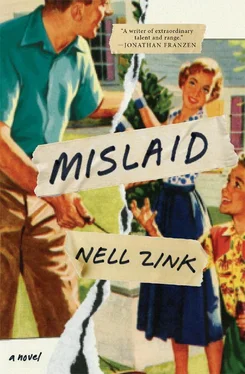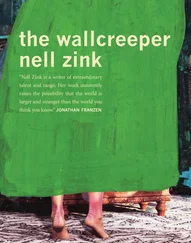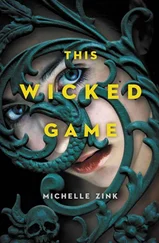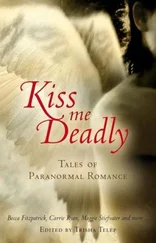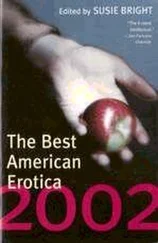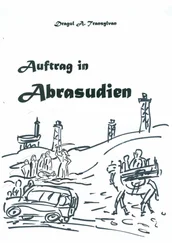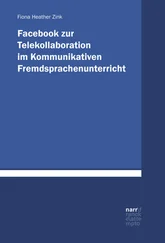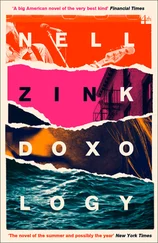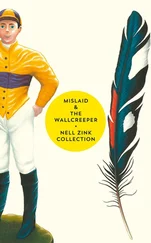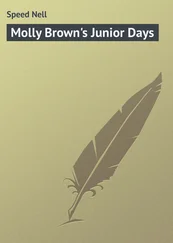College girls on the road! One-night stands! Lee felt like an Austro-Hungarian emperor attended on his deathbed by flappers. He felt them stealing his life — literally going back in time and taking, through their incoherent lifestyles, the little he had struggled so hard to attain. They didn’t look up to him as a poet. They thanked his generation for inventing the methods of appropriation (“found poetry”) and spontaneity (carelessness) that consecrated their impromptus as art. They didn’t know the concepts of the work, of personhood, of authorship. He had always been looking for things to bind himself to, relations and contexts. Or at least the meaningful absence of both. Now his students skittered over the surface of life like water bugs. They made casual sexual conquests, while he made traditional ham biscuits that took four days.
The Maoist Russ Meyer fan was an especial thorn in his side. She was an outspoken lesbian feminist à la Adrienne Rich (in 1984!) and self-proclaimed local chairman of the Society for Cutting Up Men (provincial eclecticism and the so-called postmodern: discuss). She was pretty with beautiful chestnut hair and could hold forth all night with her acolytes gathered around her. Soon she had the editorial staff of the Stillwater Review convinced you couldn’t read poetry aloud if a man was in the room and, furthermore, that a man couldn’t judge poetry written by a woman. It was still a women’s college, with mostly women on the faculty, particularly in the humanities, so there wasn’t a man for them to exclude besides Lee. She went so far as to lead a rebellion against his magazine’s publishing poetry by men. With more difficulty than he dreamed possible, he bargained them down to one female issue a year.
And she wasn’t even on the editorial board! She was too busy running her film festivals and writing an honor’s thesis on Warren Beatty’s ass in Shampoo . She told him Marge Piercy’s poetry was more emotionally available than his and thus more radical. This girl’s lesbianism didn’t mean she slept with women. Quite the opposite. She believed men were necessary sex objects, while whatever drove her to manipulate girls into banding together to do her will was a higher, sacred form of libido. She regarded the token male Lee as a dull-witted, penile one-trick pony (to her, consistency was evidence of a mind standing erect), while women were polymath geniuses until proven otherwise. Lee fantasized about accidentally fucking her to death. Not as a sexual fantasy, just as a way of seeing her dead that he might be able to pass off as an accident.
He had been hammered into an unmentionable existential crisis by one of those annoying letters gay men were getting in those days. It began, “Dear Lee, you may not remember me. .”
He remembered the writer vividly: a black-haired, post-Appalachian Trollope devotee with a singsong British accent, affectations born of a desire so blatant it can only have been unconscious to be everything his parents were not. The boy would do things like stumble in the kitchen and fall against Lee, lingering pressed against him, pushing off flat-handed against Lee’s legs to stand up again. He had no idea what he wanted. Lee let him fall deeply and helplessly in love, too far to say no to anything, before he made his move. The boy had serious literary ambitions, and Lee had promoted his career with every resource at his command, gotten him a scholarship to Columbia. And there his troubles began. The boy thought he was a little insignificant speck of a person who needed a strong guiding hand. Which worked fine if he was being passed around hand to hand by men who cared, but not so well running the club gauntlet in New York.
Oh, the tragedy of it, this object of great loves who regarded himself as a speck. And now the hostile takeover, the body making explicit how little of ourselves we can claim to own. Syphilis rising from deep down organs you never knew you had, diseases of all kinds seeping through the body and stopping at its limits as if projected on a screen. The tissues like autumn leaves falling from this alien tree, infecting lookers-on with ridiculous viruses and strange contagious cancers, and the beautiful boy, who thought himself unlovable, telling Lee he had no idea who had infected him with this thing. To Lee’s mind, the situation flung nihilism in all directions like an exploding volcano. He burned the letter in the sink and fled straight out the door, tying his shoes and buttoning his shirt as he drove down the highway to a free clinic in North Carolina. He was less likely to see someone he knew at a free clinic than at any medical practice in the Commonwealth, and the Carolinas might as well have been the moon. Eight days later he drove back for his results: negative. But the intervening time had marked him. He had been a beautiful boy once himself. The boy he liked so much would die piteously, radiating horrors like a Three Mile Island reactor block.
He envied straight men’s lives of duty and gaiety, their world bounded by pregnancy and the clap. Nothing you couldn’t laugh off or submit to. A shallow place, but how to tell them gently? Best not try. They were more fun innocent.
Case in point: Byrdie, the son growing effortlessly into lifelong boyhood. Still a schoolboy, soon to be an old boy, blithely accepting accidents as privileges — for instance, his natural immunity to HIV. (Byrdie liked studious, upper-class females. They were not exactly high risk.) Byrdie was the phoenix edition of Lee, adapted to the novel environment, and Lee was a useless relic. He had positioned himself all his life as a rebel against a hegemonic order no one was interested in questioning anymore. It had lost its power to crush and all its clumsy weapons that inspired active fear. Its dominance was equal, but separate. Its monopoly was over, by design, because it had finally figured out that if you put the oppressed in charge of their own destinies they will trouble you no longer.
Thus the editorial staff informed him that they had an innovative plan to put out the next all-women’s issue as a public reading in Richmond. Not entirely public. More precisely semipublic, since no men would be allowed inside and it would be by invitation only to female subscribers and women they told about it. No male would ever see, read, or be aware of the poems. Publishing poems on paper makes authors invisible, which is what men want.
Lee sat quietly for many seconds, pondering what he knew of Mao, then countered, with a hopeful air, “Mightn’t presenting authors onstage encourage a cult of personality?”
“We all read together, in unison,” the poetry editor explained. “It’s a symbol of our solidarity. We’re not invisible anymore, we’re invincible.” She glanced at the Maoist self-appointed editor at large, who signaled her approval with a smile.
Looking cautiously at his own hands on the table, Lee objected that institutional subscribers were paying an inflated price up front and reasonably expected four issues a year.
“If the librarians can’t come to our readings, we can add an extra issue to their subscriptions,” the managing editor suggested.
“So if people insist on authors and the cold, dead printed word, we hand them an extra book for free.”
The irony was too heavy for her, and she said, “Yes!”
Lee spread his arms over the empty chairs to his left and right and said, “Let’s just save the reading, give everybody three issues for the price of four, and tell them to fuck themselves. It would be more like performance art.”
There was a silence at the oblong table studded with cups of oat straw tea. The Maoist sat leaned over her notepad, writing fast.
Lee added, “Do you all mind if I ask you all something? Because there’s one thing I don’t get. You think men are cold, unfeeling two-bit Caligulas and you hate them. So far so good.”
Читать дальше
Конец ознакомительного отрывка
Купить книгу
